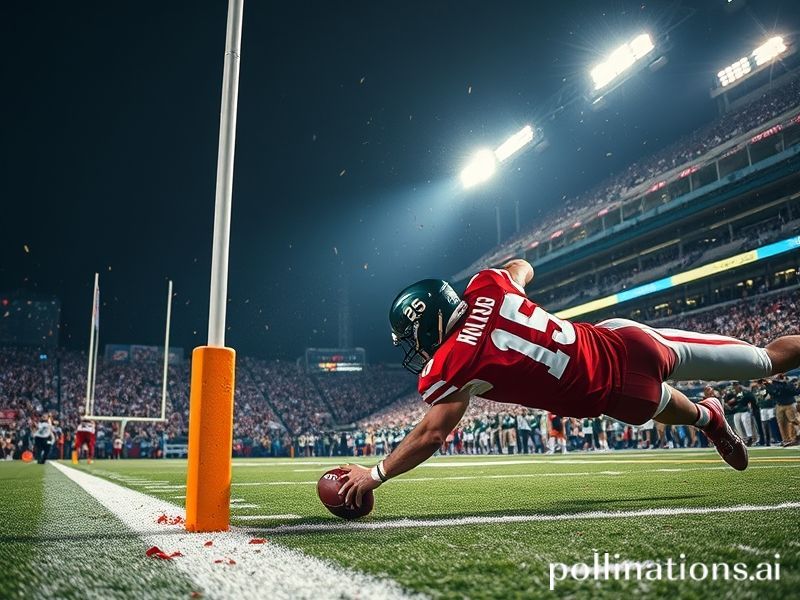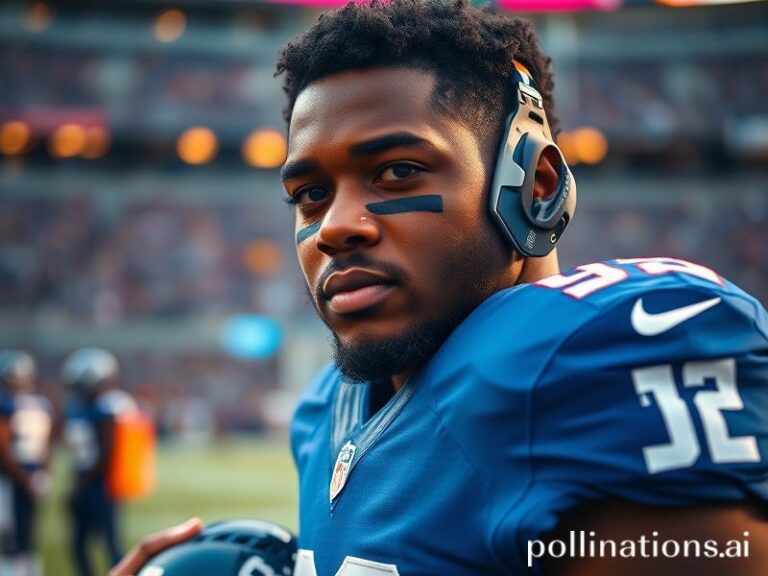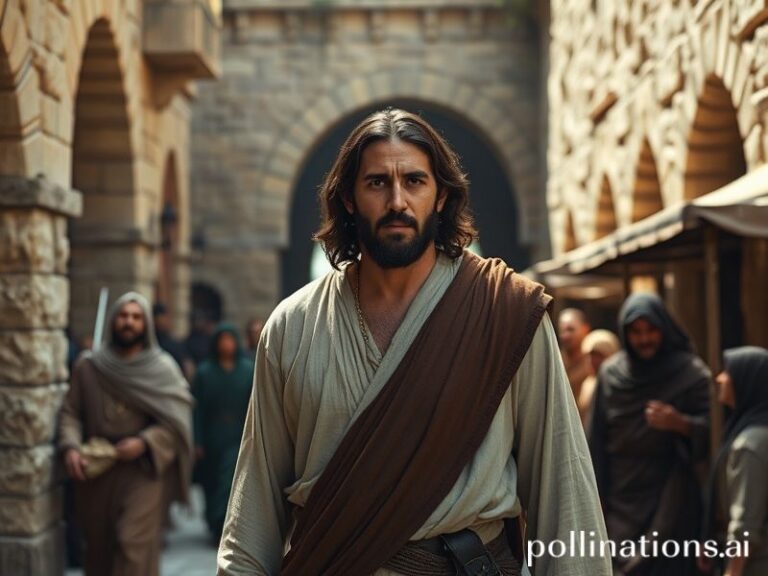Top 25 College Football: How America’s Helmeted Soap Opera Captivated the Planet
Top 25 College Football: A Global Satire in Shoulder Pads
By Dave’s Locker Foreign Correspondent, still jet-lagged from covering a Bolivian llama race
The American ritual known as the AP Top-25 college football poll dropped this week, and—like a drone strike on good taste—it instantly colonized timelines from Lagos to Lahore. Why, you ask, should a ranking of unpaid teenagers in plastic armor matter to anyone beyond the amber-waved fruited plain? Because nothing advertises late-stage empire quite like 130-year-old universities rebranding themselves as minor-league feeder teams for a monopoly that still claims tax-exempt status. Welcome to the circus; please keep your passports visible.
1. Georgia retains the top spot, a testament to what happens when a sovereign U.S. state invests more resources in its linebackers than in maternal mortality reduction. Analysts in Seoul watched the Bulldogs’ latest victory and concluded South Korea could probably repel the North with a RPO scheme and a decent nutritionist.
2. Michigan, fresh off a sign-stealing scandal that would make Cambridge Analytica blush, climbs to No. 2. European privacy lawyers, sensing a teachable moment, have started drafting GDPR-compliant playbooks: “If you consent to this blitz, please check the box.”
3. Ohio State checks in at third, reminding the planet that nothing says “heartland values” like a coach earning $10.7 million while lecturing unpaid labor about the evils of name-image-likeness cash. The ghost of Marx just audibly sighed in a Berlin cocktail bar.
4-5. Florida State and Washington round out the playoff foursome, a pairing that sounds suspiciously like a NATO joint exercise. Indeed, NATO officials confirm the Seminoles’ secondary is now on standby for Baltic airspace duty; the Huskies’ quarterback already speaks fluent Estonian—useful for reading blitzes and Russian troop movements.
6. Oregon, whose jerseys glow like Chernobyl at dusk, is apparently what happens when Nike’s marketing budget discovers fentanyl. Parisian fashion houses have declared the Ducks “peak dystopian chic,” which in 2023 is practically a Michelin star.
7. Texas is back—again—reminding global markets that some bubbles never pop; they just switch conferences. Analysts in London are pricing burnt-orange futures alongside pork bellies and existential dread.
8. Alabama slipped after a single loss, proving that even dynasties are one ankle sprain from regime change. The CIA is taking notes.
9-25. The remaining slots read like a UN roll call where everyone’s delegate is 6’4″ and runs a 4.3 forty. Notre Dame represents the Vatican’s sole military asset. USC is the entertainment division of Silicon Valley Bank. LSU exports so much defensive talent to the NFL that the Cajun Navy is now technically a net importer of hope.
Global Implications
These rankings are not merely an American pastime; they are a soft-power broadcast beamed via satellite to 214 countries, many of which still lack reliable plumbing. The average Top-25 program boasts a larger operating budget than the GDP of Kiribati. Each Saturday, foreign diplomats in D.C. angle for tickets the way Cold War spies once swapped microfilm. A single Ohio State home game generates enough economic churn to fund UNICEF for a quarter—assuming ticket revenue ever made it past the athletic department’s bourbon budget.
Meanwhile, the athletes themselves remain unpaid, a labor arrangement the International Labour Organization classifies as “innovative indenture.” FIFA executives watch in awe; even they started cutting checks eventually.
The Wider Significance
In a world tilting toward multipolar chaos, the Top-25 offers a comforting binary: win or lose, covered or exposed, ranked or irrelevant. It is the last meritocracy Americans still believe in—never mind the bagmen, the booster slush funds, and the academic exceptions wide enough to drive a recruiting caravan through. For viewers in Nairobi nursing rolling blackouts, the glowing rectangles of college football are a nightly reminder that somewhere, the lights are always on—even if the people beneath them can’t afford tuition.
Conclusion
So let the marching bands play their imperial anthems and let the tailgates burn propane like tomorrow is negotiable. From an international perch, the Top-25 isn’t a sports story; it’s a gaudy, high-definition obituary for proportion. And yet we watch—because the alternative is reading the news.







